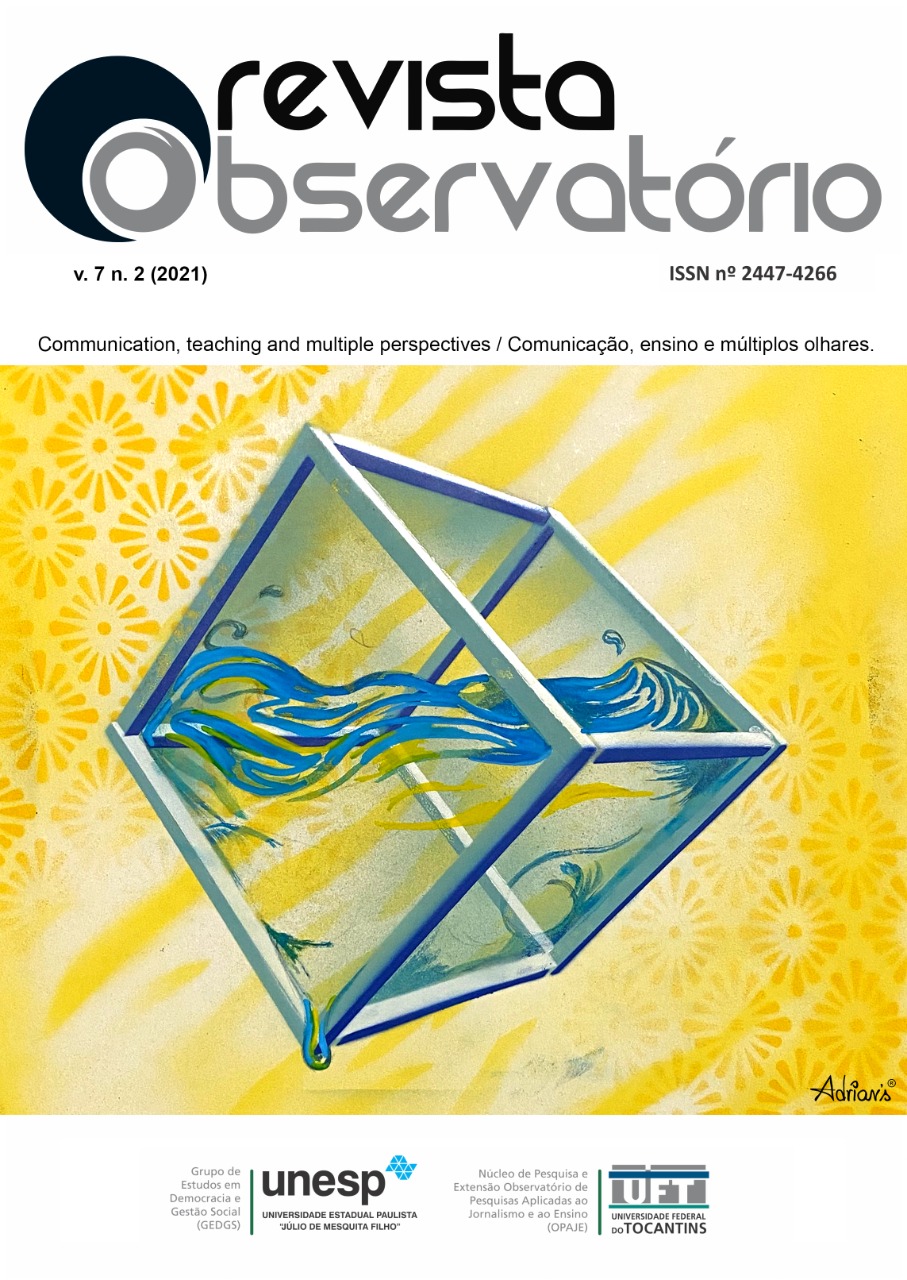INVESTIGACIÓN DE LAS POTENCIALES DE LA COMPETENCIA FLL (FIRST LEGO LEAGUE) EN EL PROCESO DE APRENDIZAJE ESCOLAR DE ESTUDIANTES DE EDUCACIÓN
DOI:
https://doi.org/10.20873/uft.2447-4266.2021v7n2a4ptPalabras clave:
Aprendizagem Ativa, Robótica Educacional, First Lego League, Educação BásicaResumen
Este trabalho aborda a utilização da robótica educacional como ferramenta nas práticas educacionais e tem por objetivo avaliar as possíveis contribuições da competição de robótica First Lego League (FLL) no desempenho escolar dos estudantes da educação básica e na formação de habilidades necessárias para o exercício profissional. Para isso, utilizou-se um questionário online que foi enviado a técnicos, mentores e estudantes participantes da competição. As análises dos dados apresentam a competição FLL com relevante potencial para trazer benefícios aos seus competidores, seja no desempenho escolar ou no desenvolvimento das habilidades certificadas pelo mercado como sendo aplicáveis a um bom profissional.
Descargas
Citas
BRINGUIER, Jean-Claude; PIAGET, Jean. Conversations with jean piaget. University of Chicago Press, 1989.
BYBEE, Rodger W. NGSS and the next generation of science teachers. Journal of science teacher education, v. 25, n. 2, p. 211-221, 2014.
CAMPOS, Flavio Rodrigues. Robótica Educacional no Brasil: questões em aberto, desafios e perspectivas futuras. Revista Ibero-Americana de Estudos em Educação, v. 12, n. 4, p. 2108-2121, 2017. Disponível em: https://periodicos.fclar.unesp.br/iberoamericana/article/view/8778 , acesso em 14/10/2020.
CÉSAR, Danilo Rodrigues. Robótica Pedagógica Livre: uma Alternativa Metodológica Para a Emancipação Sociodigital e a Democratização do Conhecimento. 2013, 220 f. 2013. Tese de Doutorado. Tese (Doutorado em Difusão do Conhecimento) . Faculdade de Educação, Universidade Federal da Bahia, Salvador.
DELORS, Jacques. Learning: The treasure within. Unesco, 1998.
FIRST LEGO League. O que é a FIRST LEGO League, 2020. Disponível em: https://www.firstlegoleague.org/about#. Acesso em: 04/06/2020.
FREIRE, Paulo. Pedagogia da autonomia: saberes necessários à prática educativa. São Paulo: Paz e Terra, 1996. Coleção leitura, p. 21, 2005.
PAPERT, Seymour. A máquina das crianças. Porto Alegre: Artmed, p. 17, 1994.
RESNICK, Mitchel. All I really need to know (about creative thinking) I learned (by studying how children learn) in kindergarten. In: Proceedings of the 6th ACM SIGCHI conference on Creativity & cognition. 2007. p. 1-6.
SCHWAB, K.; SAMANS, R. World economic forum: The future of jobs report. Retrieved January, v. 12, p. 2018, 2016.
Publicado
Cómo citar
Número
Sección
Licencia
[PT] Autores que publicam nesta revista concordam com os seguintes termos:
1. Autores mantém os direitos autorais e concedem à revista, sem pagamento, o direito de primeira publicação, com o trabalho simultaneamente licenciado sob a Creative Commons Attribution License (CC BY-NC 4.0), permitindo o compartilhamento do trabalho com reconhecimento da autoria do trabalho e publicação inicial nesta revista.
Leia todos os termos dos direitos autorais aqui.

